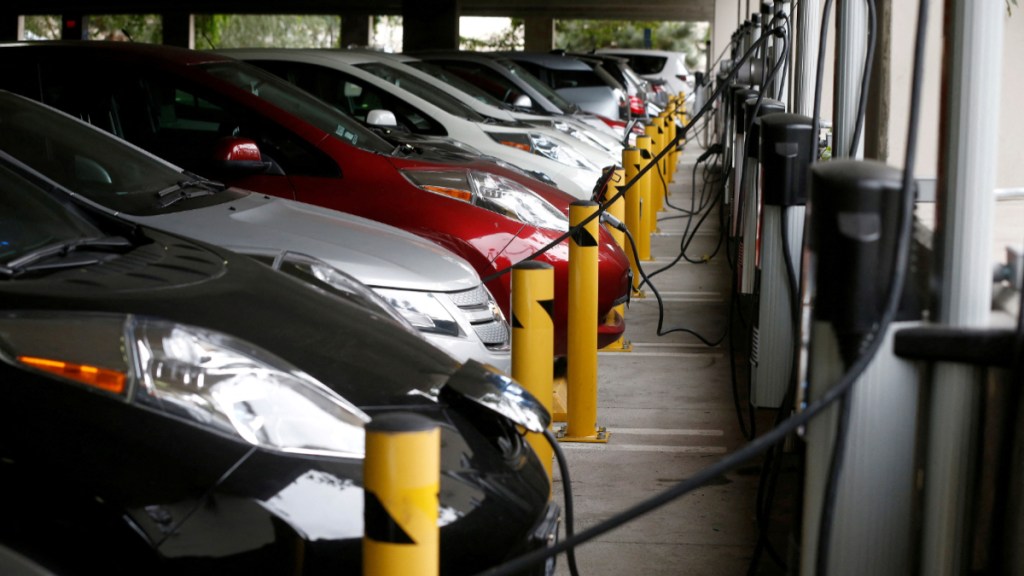Rameesh Kailasam & Madhabi Sarkar
The Delhi government announced the ‘Motor Vehicle Aggregators Scheme’ (revised July 2022) to push more electric vehicles (EV) on to Delhi’s roads, in order to address its problem of seasonal pollution. While the intention may appear good, the scheme will lead to a massive disruption to the livelihood of people dependent on the gig economy.
The scheme prescribes an EV target of 50% in two years on new two- and three-wheelers. For four-wheelers, the two-year target is 25%. Apart from a licence fee valid for three years, the proposed policy states that aggregators will have to ensure that all new vehicles that will be on-boarded are not older than five years from the date of registration of the vehicle. Further, all the vehicles in the fleet can’t be older than eight years from their date of registration.
All aggregators are required to shift to an all-electric fleet by April 1, 2030. The policy puts the responsibility of EV adoption on the aggregators, an ill-advised approach since aggregators do not own any vehicles. The vehicles are owned/rented by delivery partners who come from different economic backgrounds. Most often, they use household vehicles, rent bikes, or even use bicycles. Ideally, bicycles, being the cleanest vehicle, should have also been considered here.
In the delivery ecosystem that includes food delivery, there are many people who are solely dependent on this for a living, and forcing them to buy an EV is imposing a huge capital cost, which they cannot afford. Some people do this part-time in addition to their jobs to supplement their income. There are those who undertake this activity on weekends in addition to their regular jobs. Therefore, it is an important source of livelihood for thousands across the city, who are able to leverage the two-wheeler they own to make ends meet. A mandatory EV conversion provision will not only finish off the delivery ecosystem that has provided ease to consumers and revenue growth to restaurants and food businesses, but also deliver a blow to the emerging startup ecosystem, apart from the delivery entrepreneurs, their livelihoods, and the emerging gig economy, thereby increasing potential unemployment.
The policy in its current form contradicts the Rozgar Budget that the Delhi government had announced. Mandating an aggregator’s licence and the steep EV mandate will limit the delivery catchment area and have serious implications for the cloud kitchens that Delhi’s Budget FY23 aimed to serve, apart from having substantial repercussions on the state revenue, which depends on GST for over 50% of the total collections. Per the Niti Aayog, 7.7 million people are involved in gig work in India, and this number can potentially to jump to 23.5 million by 2029. Given that Delhi has an estimated population of close to 1.9 crore, the negative impact on livelihoods can be much higher.
The EV supply infrastructure is still nascent in Delhi, with limited financing despite central and state subsidies. The cost of EV two-wheelers continues to be significantly high, and even mere retrofitting would cost `20,000-30,000. These are steep figures for delivery executives, who use their household vehicles to undertake gig work. Even those delivery executives who can purchase EVs might faced difficulties in accessing the required charging and swapping infrastructure, and dealing with a range of attendant complexities. The Delhi government itself plans to take two additional years to have charging infrastructure at every 3 km, a prerequisite for undertaking hyperlocal deliveries. It would thus be practical to move in a graduated manner instead of this utopian, abrupt switchover model. Lowering the two-year new-onboard target to realistic targets like 10-15% would be an ideal way forward while building the necessary infrastructure.
The gig economy is largely freelance- and task-based, providing flexibility to its partners. A state-level regulation to get a license to operate might curb the essence of the gig economy and the flexibility of gig workers, leading to a domino effect across states. This might impact not only the businesses but also the large number of delivery partners, sellers, restaurants, merchants, and customers. Ideally, the state should move away from mandating such licensing requirements. The policy also asks for the registration of all vehicles and delivery executives on a state portal. In last-mile delivery, often, the vehicle is rented. While delivery partner registration is possible, vehicle registration is difficult. Also, a delivery person might be associated with multiple platforms or maybe using multiple vehicles. Since registration of gig workers is already happening on the e-Shram portal of the Union government, state-level registrations will only be a duplication of efforts.
The policy proposed by Delhi aims to ensure that the vehicles used by aggregators and delivery-service-providers are brought into the fold of sustainable and clean mobility. But, there needs to be a pragmatic approach to balance livelihoods, economics, and environment.
(Respectively, CEO and senior manager (public policy), Indiatech.org)


